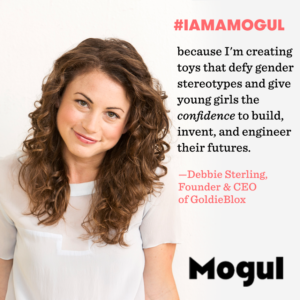Daniel Katz is an entrepreneur who launched the business “No Cow” when he was 18 years old. Less than three years later, the company has grown into a ten million dollar company. Daniel says “I’ve always been the curious, entrepreneurial, obsessive there’s-got-to-be-a-better-way type.” Daniel had his own little business at nearly 12 years old. Growing up he sold electronics, cars, snakes, and energy drinks and even a house. Daniels passion for fitness and his obsession for solving problems came to
No Cow was started in 2015 after Daniel’s solution to stomach aching protein bars that contained dairy. He created low-sugar, dairy-free protein bars, cookies, and a variety of nut butters. Last year they received an investment from General Mills and 2X Partners in which the company changed its name, reconfigured packaging, and hired a CEO. Before hiring the CEO, it was a one man operation, Daniel was working 18 hour days, 7 days a week and living at the office. He has come a long way since and Daniel’s No Cow is now projected to book $20 million in sales in 2018.
Daniel’s story is very inspiring and really shows what kind of person he is. This entrepreneur is driven by his desire to solve problems and help others. By creating his products in No Cow he started by simply creating the products for himself and then moved to selling them to others with similar issues. This is a great idea because he has come up with a solution for a huge market, fitness is becoming increasingly popular and I’m sure other people had been looking for products like this. He is an extremely hard worker and is seriously committed to his job. Not many other people would live in their work office off of an air mattress and 10 for $10 cans of vegetables. As an aspiring entrepreneur it is reassuring to see teenagers are able to effect the world of business just as much as anyone else can.
https://www.inc.com/profile/no-cow


 throughout his high-school career. This experience showed him how much he loved working for himself and he developed a growing desire to be an entrepreneur in the future. He also decided that he didn’t want to do work that relied on weather or a lot of physical strength. Some other things that drove him to be an entrepreneur include the opportunity to make a difference in the lives of others, the opportunity to be extremely successful, the uncapped financial opportunity, a flexible schedule, and less risk in the long run. During his college career, he discovered that through digital marketing, he could meet all of his needs and desires.
throughout his high-school career. This experience showed him how much he loved working for himself and he developed a growing desire to be an entrepreneur in the future. He also decided that he didn’t want to do work that relied on weather or a lot of physical strength. Some other things that drove him to be an entrepreneur include the opportunity to make a difference in the lives of others, the opportunity to be extremely successful, the uncapped financial opportunity, a flexible schedule, and less risk in the long run. During his college career, he discovered that through digital marketing, he could meet all of his needs and desires.

 Will Paterson is an England designer with specialties in Company Identity and Branding for his clients. He has an established website and is active on YouTube and Instagram. On his website, he displays his hand lettering and logo design work. He speaks about his goals as a designer and specifically mentions that he wants to take his talents and continually expand them into new avenues as he adapts to the changing markets. On his YouTube channel, he has a multitude of videos explaining logo design from a very broad aspect to specific important details of logo designs. He is continually putting out content for his followers, from courses on design programs to critiques of designs his followers send to him. It ranges from educational to entertaining and I believe it is a great variety so that he reaches as many people as possible.
Will Paterson is an England designer with specialties in Company Identity and Branding for his clients. He has an established website and is active on YouTube and Instagram. On his website, he displays his hand lettering and logo design work. He speaks about his goals as a designer and specifically mentions that he wants to take his talents and continually expand them into new avenues as he adapts to the changing markets. On his YouTube channel, he has a multitude of videos explaining logo design from a very broad aspect to specific important details of logo designs. He is continually putting out content for his followers, from courses on design programs to critiques of designs his followers send to him. It ranges from educational to entertaining and I believe it is a great variety so that he reaches as many people as possible. How is Will an Entrepreneur? As a designer he has to adapt and be flexible to be available to potential clients, he has a passion for giving an image and identity to companies, he creates with his hand writing, and he networks through his various social media platforms. With all that, bottom-line, he creates an interesting and successful product for a market that is looking for his work. And with his work he has made the effort to not only be a creator but a teacher through his following on Instagram and YouTube.
How is Will an Entrepreneur? As a designer he has to adapt and be flexible to be available to potential clients, he has a passion for giving an image and identity to companies, he creates with his hand writing, and he networks through his various social media platforms. With all that, bottom-line, he creates an interesting and successful product for a market that is looking for his work. And with his work he has made the effort to not only be a creator but a teacher through his following on Instagram and YouTube.
